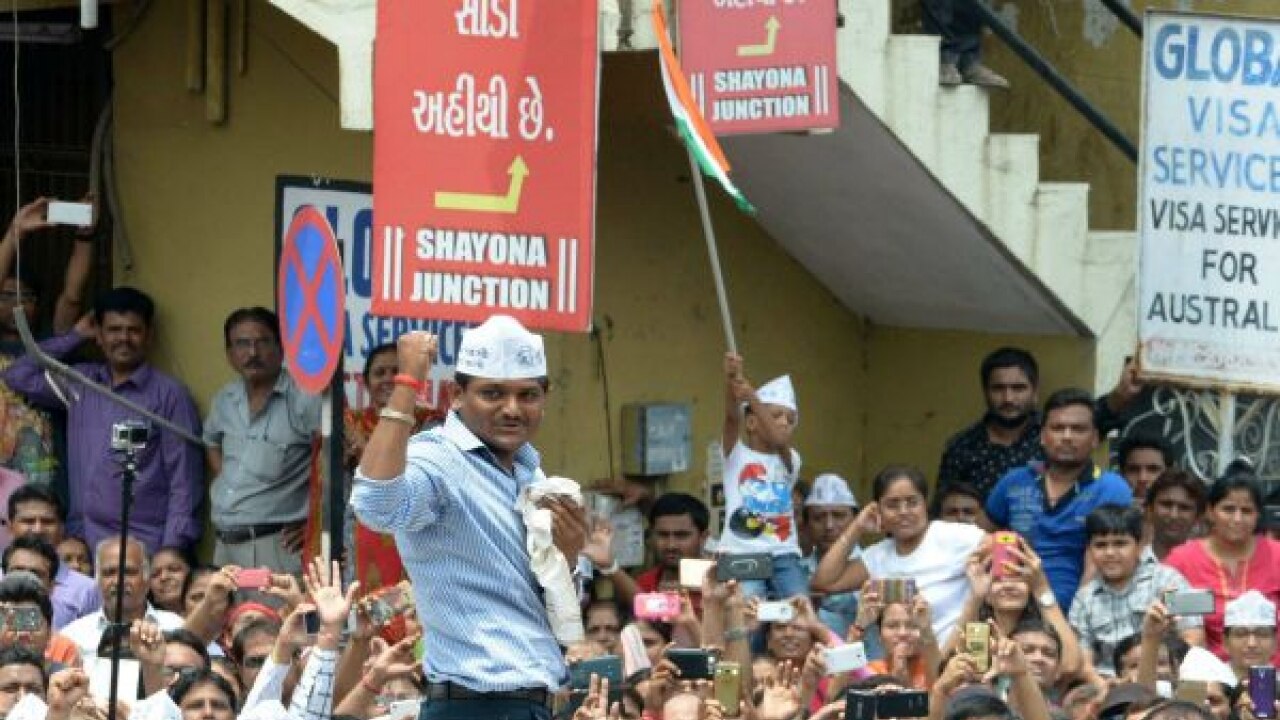
There is a history of agitation (andolan) in Gujarat. There was the Mahagujarat agitation in 1956, the Kutch border satyagraha in 1968, the Navnirman in 1974, anti-Emergency 1975-77 and anti-reservation in 1981-85. All of them were directed against the government.
Patels are comparatively rich. There are about 1.7 million Patels in the US. After Madhavsinh Solanki's election victory in 1981, OBCs were to be admitted to the quotas that had been decided on in 1970! Solanki continued with his quota politics during the 1985 elections. He supported an increase in quota up to 28 per cent for the OBCs. This 28 per cent added to the 14 per cent reservations for Scheduled Tribes and seven per cent for Scheduled Castes, meant that 49 per cent of positions in higher education and government employment were reserved. Anti-reservation demonstrations multiplied after the Solanki-government formation. It was the first time middle class men and women took to the streets and over 100 people were killed.
It has happened again.
Hardik, who graduated with less than 50 per cent marks from an Ahmedabad college, hails from an average middle class Patel family near Viramgam, a small city in Saurashtra region. He helps his father run a submersible pumps business. His father, Bharat Patel, is known to Chief Minister Anandiben Patel. It may be the case that a section of the party hurt his father. Hardik was a member of the Sardar Patel Group (SPG) and leader of the Viramgam unit. Then he formed his own organisation, Patel Anamat Andolan Samity (PASS).
The agitation had turned violent after Hardik announced an indefinite fast until the Chief Minister herself came to accept their memorandum at the GMDC ground. In the evening, the police rounded up the organisers and indiscriminately lathicharged the crowd that had gathered at the ground and arrested Hardik. As soon as news spread of Hardik's detention (police said that it was not detention, but protection only) violence gripped the city. Violence started on the night of August 25, and continued on August 26 and 27.
But this was not the complete picture. Near India colony, a Patel-dominated locality in Ahmedabad remained on edge the day after Shwetang Patel, 32, died in police custody. The society was in mourning after Shwetang died of bruises allegedly inflicted by the police. His parents had refused to take custody of the body without action against police. The Gujarat high court had directed a panel of five doctors to conduct a fresh post-mortem.
Shwetang's mother Prabhabahen said: "On Wednesday (August 26) at around 2 pm two policemen in plain clothes came and told me if I want to see my son I will have to go with them to the police station. At the mortuary I saw the face of my son. I broke down. The police had tried to force me to take the dead body of my son. I refused."
It is time to ask the basic question whether the policy of reservations has failed. The Patel agitation that erupted in the state last month is a clear warning to society and politicians. The policy has to be reviewed in depth, looking at its positive as well as negative impacts. What are its loopholes? The state's policy should be to help all the people in society and not just a few sections.
The author is a veteran journalist, historian and political analyst